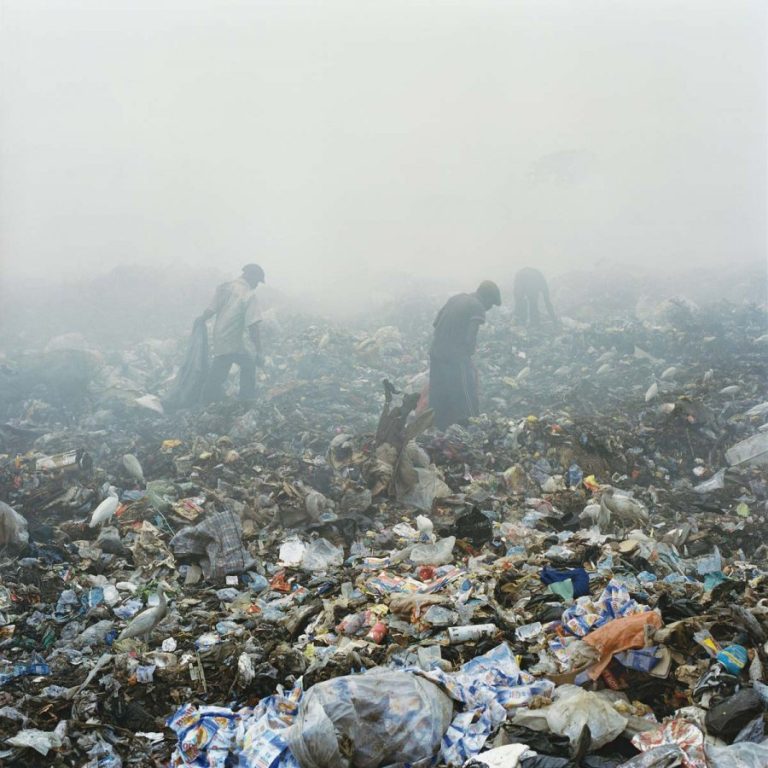By Lukman Olabiyi
Lagos State Lagos State Waste Management Authority (LAWMA) disclosed on Thursday that it has concluded plans to permanently shut down the landfill sites at Olusosun and Solous in Igando and transform them into renewable energy stations.
The MD/CEO of LAWMA, Dr. Muyiwa Gbadegesin, disclosed this at a One-Day Stakeholders’ Forum on Sustainable Waste Management in Lagos State, held at the Civic Centre, Victoria Island, Lagos.
He said the initiative is in line with Governor Babajide Sanwo-Olu’s agenda to tackle environmental and health concerns associated with these sites.
Gbadegesin revealed that the shutting down and evacuation of the waste at the dumpsites will commence in December 2024 and last for 18 months.
He emphasised his agency’s commitment to creating a cleaner Lagos and also collaborating with stakeholders for a sustainable environment.
“We recently signed a memorandum of Understanding with ZoomLion which is a Ghanaian company, and we have partnered with them to establish material recovery facilities. Even before that, they are going to cover the landfill; Olusosun and Solous within the next 18 months, they will cover it with Geotextiles, place solar panels on it and then construct transfer loading stations, one at Solous and another at Olusosun, so that we can take the waste in trailers to material recovery facilities that will be constructed in Ikorodu and Badagry.
“The recovery facilities look like factories, you won’t see the waste and at the facilities, the bulk waste can then be circulated into various means, such as metals and plastics. That is the plan, we do not want waste on the street of Lagos and we no longer want dumpsites, we want material recovery facilities,” he said
The LAWMA boss mentioned that the whole essence of the forum is to incorporate the stakeholders to embrace the ‘adopt a bin’ initiative of the government and support the environmental revolution strides of the state government towards creating wealth and ensuring a cleaner environment.
He added that the state at the moment only recycles 8 per cent of the recyclable materials while hoping to increase the efforts to over 20 percent in the next three years.
According to him, “We have introduced a two-bin programme which means that every household and business should have a minimum of two bins, one for organic/general waste and another for dry recyclable waste like plastics, paper, and metals. In order for us to achieve our sustainability goals, we must separate our waste at source, so we want the stakeholders to do two things, to acquire these bins for their own use and also acquire it in bulk for distribution to those that are less privileged as corporate social responsibility (CSR) contributions, and we have received positive feedback from them.”
Addressing concerns about the cost of the bins amid economic challenges, he mentioned an instalment payment plan that allows payments over three years.
Regarding local production of the bin, Gbadegesin stated that due to the high demand for smart bins, discussions are underway with suppliers from Germany to establish local manufacturing.
He added that the smart bins, equipped with RFID tags for tracking and monitoring, offer long-term durability and security.
Executive Director of the Lagos Waste Management Authority (LAWMA) Mr. Kunle Adebiyi said solid waste management has been a pressing issue in the modern world driven by rapid urbanisation, industrialization and population growth, stressing that
Adebiyi, who mentioned that Lagos generates an average of 13,000 tonnes of waste daily, said that such a forum will allow a stakeholder to jointly examine all workable options available and fine-tune strategies, to ensure the state remains on top of the situation.
In their separate presentations, some of the local and international stakeholders highlighted some benefits of recycling and explained how to leverage technology partnerships to revolutionise waste collections in Lagos state.
